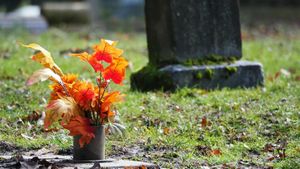The legal team representing convicted nurse Lucy Letby is gearing up to present what they claim to be significant new medical evidence at a press conference scheduled for Tuesday morning in central London. Letby, currently serving 15 whole-life sentences for murdering seven newborns and attempting to murder seven others at the Countess of Chester Hospital between June 2015 and June 2016, has maintained her innocence since her conviction.
Chaired by Conservative MP Sir David Davis, the panel will include British-born Dr. Shoo Lee, a retired neonatologist and president of the Canadian Neonatal Foundation. Dr. Lee’s expertise includes over three decades of research, and he has expressed concerns about how his prior findings were interpreted during Letby’s trial. He remarked to the Sunday Times, "I wasn’t very happy because what they wereinterpreting wasn’t exactly what I said." This press conference is not just about Letby’s case; it has broader implications concerning the reliability of expert medical testimony within legal proceedings.
At the heart of Letby’s legal challenge lies the unanimous findings of 14 international neonatal specialists who conducted their own independent analysis of the tragic deaths and serious injuries of 17 babies whom Letby was accused of harming. Early reports indicate they have found alternative medical causes for several deaths, contradicting the prosecution's assertion of deliberate harm through injections of air embolisms.
Dr. Lee’s earlier research, particularly his 1989 paper on air embolism, gained significant traction during the original trial when it was used to support the prosecution’s narrative. Yet, he has now highlighted discrepancies, noting, "The type of discolouration did not match 'specific' tell-tale patterns I identified." His involvement reinforces the notion of potential misinterpretation of phenotypes and clinical indicators presented during the trial, raising questions on whether the right conclusions were drawn.
Mark McDonald, Letby's barrister, emphasized the importance of the press conference by stating, "This international panel is her final hope to show what she has been saying all along is right." The comments echo the sentiments of many who advocate for Letby's case to be revisited through the Criminal Cases Review Commission (CCRC), which is tasked with investigating possible miscarriages of justice. It has been suggested by sources close to the case, though, to question the strategy of publicly presenting all evidence before formally applying to the CCRC.
There is mounting skepticism among medical professionals over the convictions. Dr. Svilena Dimitrova, NHS consultant neonatologist, pointed out medical inaccuracies presented during Letby’s trial, asserting, "The theories proposed in court were not plausible and the prosecution was full of medical inaccuracies." Her remarks highlight concerns not just about this specific case but also the broader integrity of medical evidence used within judicial systems.
This sentiment resonates with Dr. Michael Hall, another retired consultant pediatrician, who passionately contended, "Important elements of medical evidence presented by prosecutors were flawed or misleading." The challenges to the validity of the evidence signal larger discussions around the standards of proof required for such serious charges, particularly when it involves expert testimony.
Letby’s legal team previously made failed attempts to appeal her convictions, citing the need for significant new evidence. Their fresh approach is centered around these new analyses and challenges the prosecution's claims, seeking to reopen her case under the auspices of the CCRC. Their goal is to present this panel’s findings effectively, asserting no evidence of deliberate harm was ever demonstrated by the prosecution during the trial.
The potential outcome of this new evidence remains uncertain, as Letby has systematically exhausted her right to appeal without introducing compelling new data. Nevertheless, if the CCRC acknowledges reasonable grounds to believe judges could quash her convictions, it has the authority to refer the case back to the Court of Appeal. This step, if taken, could take years before Letby's convictions are reviewed again.
The discourse surrounding Lucy Letby’s convictions also raises uncomfortable questions about the trust placed in expert testimony and how its misapplication can lead to wrongful convictions. Commentators like Dr. Sandie Bohin, who provided expert witness testimony to the prosecution, have defended their credibility, insisting, "I gave evidence under oath 16 times. I told the truth." Such assertions highlight the contentious nature of this case, with conflicting expert opinions illustrating the thin line between medical certainty and uncertainty.
Upcoming legislative and public inquiries are also anticipated to shed more light on the events surrounding her tenure at the Countess of Chester, with findings expected to emerge this autumn. The impending results of these inquiries will undoubtedly affect both public perception and legal strategies surrounding this case.
Overall, the developments set to occur during Tuesday's press conference can pivotally affect Lucy Letby’s future and the entire conversation about justice, accountability, and the reliability of medical evidence within the legal framework.



